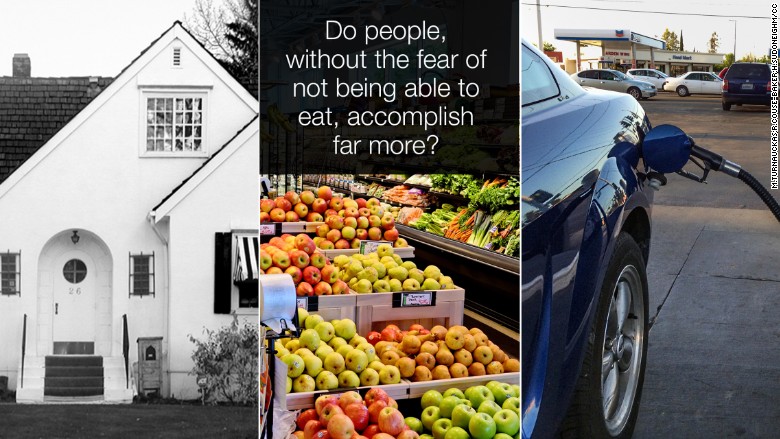
Oakland will be a test bed for Y Combinator's new research project.
The Silicon Valley organization, known for its elite accelerator program, announced in January that it was footing the bill for a long-term study on what people do -- and how they feel -- when their basic expenses are covered.
Known as basic income, it's a form of social security. People get a lump sum of money on a regular basis to cover the cost of rent and food without needing to work for it.
Y Combinator wants to study what people of various economic backgrounds do with that financial freedom. Do they sit around all day watching Netflix and playing video games -- or will they start businesses? Will they be happy?
On Tuesday, Y Combinator announced that it has hired Elizabeth Rhodes to lead the study. Rhodes is a recent PhD graduate in social work and political science from the University of Michigan.
She was selected out of more than 1,000 applicants, ranging from chief economists to tenured professors from Oxford, Columbia and Harvard.
Her first effort will be launching the research pilot in Oakland in the next few months. "It's a really exciting opportunity," Rhodes told CNNMoney. "It's a new idea; it's still somewhat obscure."
Related: Cooking for Oakland: How this tech startup gives back
The pilot is an important step in refining logistics for a nationwide study, like how to select participants, how to transfer funds and how to collect data.
Oakland was chosen for the pilot for a variety of reasons, including it's social and economic diversity, and its growing inequality as a result of an increasing concentration of wealth.
Just who will be participating and how much money they'll receive each month has yet to be determined, but Y Combinator said it'll likely run between $1,000 and $2,000.
Y Combinator said it received "hundreds" of emails from people who were interested in getting paid a basic income as part of the study. Similarly, when CNNMoney covered the initial announcement, several individuals emailed to find out how they could be part of it.
Rhodes said they'll collaborate with other academics who want to assist in the study -- for free -- because they're interested in how basic income can be used to offset the growing inequality in the United States.
Other countries have experimented with basic income.
Finland is considering paying citizens $10,000 a year to replace other state benefits, which are costly and riddled with bureaucracy, while Switzerland is considering giving every adult citizen $2,500 per month.
The goal of YC's research is to get a data-based understanding of how a basic income would work in the U.S.
This is the second initiative as part of YC Research, Y Combinator's newly established nonprofit research hub. Its first big project, Open.AI, announced in December.

